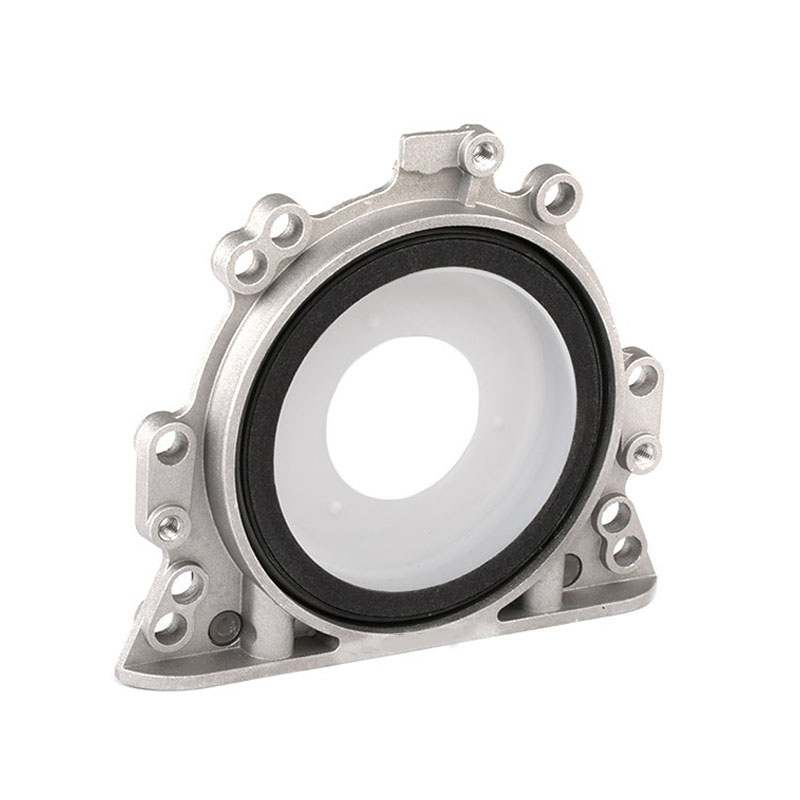radial shaft seal
Understanding Radial Shaft Seals Importance and Applications
Radial shaft seals, commonly known as radial oil seals or simply shaft seals, play a critical role in numerous industrial applications. Their primary function is to prevent the leakage of fluids while simultaneously protecting rotating shafts from external contaminants. As dynamic seals, they are essential in various machinery and equipment, including automotive engines, pumps, gearboxes, and hydraulic systems.
Structure and Function
A radial shaft seal typically consists of several essential components a sealing lip, a metal or plastic casing, and a spring. The sealing lip is made of a resilient elastomeric material, such as nitrile or fluorocarbon, which enables it to conform tightly to the rotating shaft's surface. This tight fit creates a barrier that prevents fluids from escaping and shields the shaft from dust, dirt, and other harmful substances.
The metal or plastic casing reinforces the seal's structure and facilitates installation. The spring, usually situated inside the sealing lip, applies a constant radial force against the shaft, ensuring that the lip maintains contact with the shaft surface, even under varying conditions such as temperature changes, pressure variations, or wear.
Applications and Importance
Radial shaft seals are ubiquitous in the automotive industry, where they are crucial for maintaining engine integrity and efficiency. In vehicles, these seals are commonly found in the crankshaft and camshaft areas, where they prevent oil leaks that can lead to significant engine damage and reduced performance. Moreover, they help in maintaining optimal pressure levels within the engine, promoting better fuel efficiency and engine longevity.
radial shaft seal

In industrial machinery, radial shaft seals are extensively used in pumps and compressors
. These seals ensure that hydraulic fluids remain contained within the system, preventing leaks that can cause operational failures or safety hazards. The durability and reliability of these seals significantly contribute to the overall efficiency and productivity of industrial processes.Hydraulic systems also rely heavily on radial shaft seals. The high-pressure environment present in these systems demands seals that can handle extreme conditions without compromising performance. A reliable radial shaft seal will minimize leakage, reduce the risk of contamination, and contribute to the safe and effective operation of hydraulic machinery.
Challenges and Considerations
Despite their importance, radial shaft seals are not immune to challenges. Over time, factors such as temperature fluctuations, high speeds, and exposure to chemicals can lead to wear and tear, resulting in seal failure. Regular maintenance and monitoring can help identify potential issues before they escalate.
When selecting a radial shaft seal, it is imperative to consider the specific application requirements, such as the operating temperature, pressure, and type of fluid involved. Different materials and designs are available to cater to various needs, ensuring optimal performance and longevity.
Conclusion
In summary, radial shaft seals are fundamental components in many mechanical systems, ensuring the efficient operation and longevity of machinery. Their ability to prevent fluid leakage and protect against contamination is vital across diverse industries, from automotive to heavy machinery. Understanding their structure, function, and the challenges they face can help in selecting the right seals for specific applications, ultimately enhancing performance and reliability. As technology advances, continued innovation in seal design will further improve efficiency and durability, underscoring the importance of these seemingly simple yet essential components.
-
The Ultimate Guide to Boat Propeller Bearings and Trailer Wheel Bearings
News Jul.31,2025
-
The Essential Guide to Marine Bearings and Boat Trailer Wheel Bearings
News Jul.31,2025
-
The Complete Guide to Heavy Duty Seals: Protecting Doors and Spaces Efficiently
News Jul.31,2025
-
Essential Guide to Marine Shaft Bearings and Boat Trailer Axle Bearings
News Jul.31,2025
-
Comprehensive Guide to Marine and Trailer Bearings for Safe Boating and Transport
News Jul.31,2025
-
Comprehensive Guide to Automotive Oil Seals: Protecting Your Engine and Shafts
News Jul.31,2025
-
Understanding Automotive Oil Seals: Essential Components for Engine and Shaft Protection
News Jul.30,2025
Products categories















